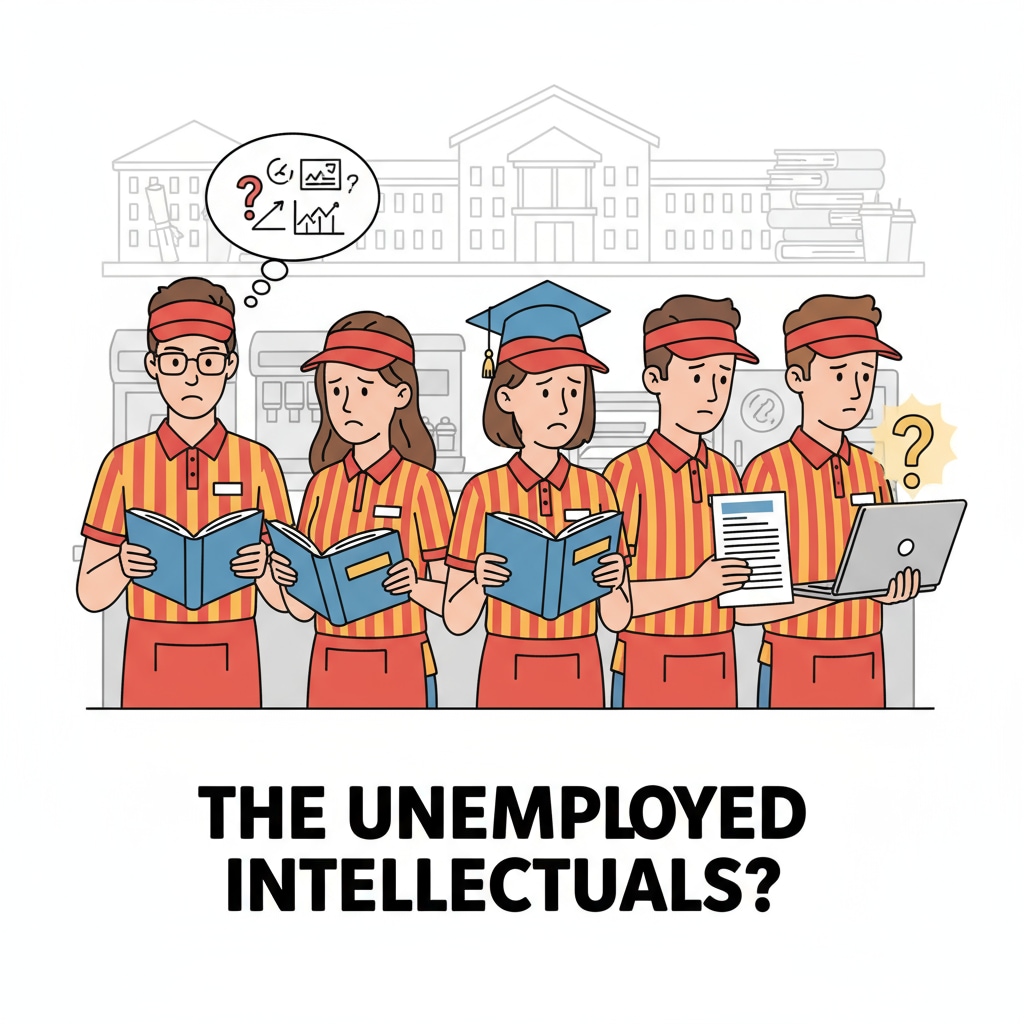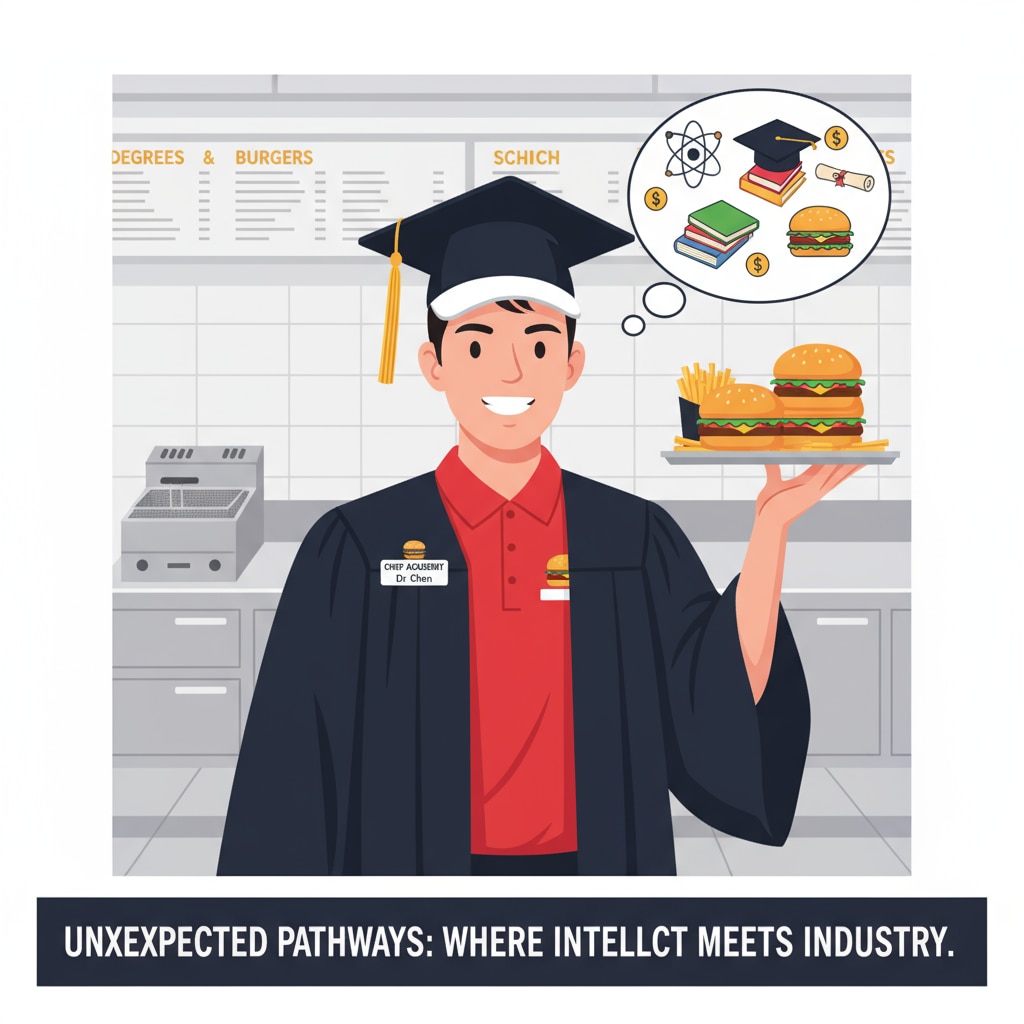University degrees, job market, and career development have always been intertwined. However, in 2025, a growing phenomenon has emerged that challenges our traditional understanding of the value of a university degree. The sight of individuals with advanced degrees donning fast-food uniforms has become more common, leading us to reevaluate the worth of educational investments.

The Widening Gap between Education and Employment
For years, obtaining a university degree was seen as a surefire ticket to a prosperous career. Parents and students alike invested significant time, effort, and money into higher education, expecting a good return in the job market. However, today’s reality tells a different story. Many graduates are finding it difficult to secure jobs that align with their educational qualifications. According to the Bureau of Labor Statistics, the unemployment rate among recent graduates has been steadily increasing, despite their high levels of education. This mismatch between education and employment has led to a growing sense of disillusionment among students and their families.
The Allure of Fast-Food Jobs for High-Degree Holders
It’s not just about unemployment; some highly educated individuals are choosing to work in the fast-food industry on a long-term basis. This might seem counterintuitive at first glance. But there are several reasons behind this trend. For example, the fast-food industry offers flexibility in working hours, which can be appealing to those who might be pursuing other interests or further education simultaneously. Additionally, the entry requirements are often less stringent compared to many professional fields. As a result, we’re seeing more master’s degree holders taking up positions at fast-food joints.

Rethinking K12 Education for Future Employment Realities
If the current job market is presenting such challenges for university graduates, it’s crucial that we start rethinking education from the K12 level. Instead of solely focusing on academic achievements that lead to a university degree, K12 education should incorporate more practical and vocational training. This way, students will be better prepared for a wider range of career paths, not just those that require a traditional university education. By exposing students to real-world work experiences early on, we can help them make more informed decisions about their future careers. According to the U.S. Department of Education, integrating career and technical education into K12 curricula can enhance students’ employability skills.
Readability guidance: As we’ve seen, the relationship between university degrees, the job market, and career development has undergone significant changes. The current situation calls for a comprehensive approach to education and career planning. By addressing these issues, we can better prepare the next generation for the evolving job market.


